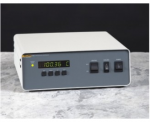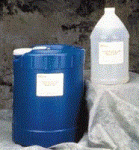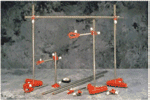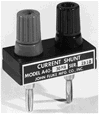
Keranjang
FLUKE ITS-90 Fixed-Point Cells
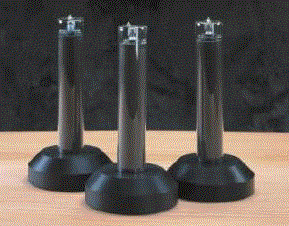
| Kategori | FLUKE |
| Di lihat | 1289 kali |
| Harga | Rp (hubungi cs) |
Detail Produk FLUKE ITS-90 Fixed-Point Cells
 Traditional freeze-point cells
Traditional freeze-point cells
If you want true primary temperature standards capability, you want metal freeze-point cells that are very close to the theoretical freezing temperature and provide plateaus that are both stable and long lasting.
Fluke Calibration’ s metal freeze-point cells are the culmination of more than 20 years of primary standards experience. No other company has as much experience in the development of metal fixed-point cells. That’ s why you’ ll find Fluke cells in many national metrology institutes around the world.
Each Fluke Calibration cell is carefully constructed in our ultra-clean, state-of-the-art lab, using high-density, high-purity graphite crucibles containing metal samples with purity of at least 99.9999 % ( six 9s) and, in many cases, 99.99999 % ( seven 9s) . The crucible is enclosed within a sealed quartz glass envelope that is evacuated and back-filled with high-purity argon gas. A special sealing technique is used to seal the cell at the freezing point. We measure and record for you the precise pressure of the argon gas to ensure the most accurate corrections for pressure.
Once manufactured, all Fluke cells are tested and supplied with an assay of metal-sample purity. Every traditional size ITS-90 cell further undergoes more rigorous testing in our primary standards lab where we realize melt-freeze curves and perform a detailed “ slope analysis ” to confirm cell purity. If you want more data, we’ ll give you an optional intercomparison with our own reference cells.
Gallium cells
Gallium cells are a great reference for validation of instruments subject to drift ( like SPRTs) , and they’ re important for calibrating sensors used near room or body temperatures, in environmental monitoring, and in life sciences applications.
Fluke Calibration’ s 5943 Gallium Cell is sealed in a stainless steel envelope. High purity gallium ( 99.99999 % ) is enclosed in a plastic and metal shell. The stainless steel container is then filled with pure argon gas at one standard atmosphere at the melting-point temperature.
Gallium expands by 3.1 % when it freezes requiring the cell to have flexible walls. Unlike some manufacturers’ cells, which are made from PTFE enclosure materials, our cells don’ t need pumping and refilling because they’ re not gas permeable. In fact, we guarantee our cells will maintain their uncertainty of < 0.1 mK for at least five years. Realization and maintenance of the cell is automated with our 9230 Maintenance Apparatus ( see page 31) . This apparatus will provide melting plateaus up to eight days and a convenient control to automatically achieve a new melt plateau each week with an investment of just five minutes. Never has the maintenance of a world-class gallium cell been easier.
Water cells
While simple ice baths are often used as a calibration point at 0 ° C, their limitations include gradients, purity problems, repeatability issues, and variances in construction and measurement techniques. Triple point of water cells not only solve these problems; they represent the most used temperature on the ITS-90, and they’ re inexpensive to own and use.
Fluke Calibration makes three traditional-size TPW cells that have been repeatedly proven in national labs to surpass their published uncertainty specification of ± 0.0001 ° C. Ice mantles may be formed using dry ice, LN2 , or immersion freezers and can last for up to two months when maintained in our 7012 or 7312 baths.
Open metal cells
Made from the same materials and with the same manufacturing techniques as their sealed counterparts, Fluke’ s new series of “ open ” metal fixed-point cells include a high quality valve for connecting to a precision pressure-handling system within your lab. Using such a system, the cell can be evacuated, charged, and purged several times with a pure inert gas, then charged again to a regulated pressure level while measurements are made with the cell.
Once assembled and tested, each Fluke Calibration ITS-90 open cell further undergoes more rigorous testing in our lab, unlike cells from some manufacturers who provide their open cells as a kit of parts, without any test data.
Because open cells allow users to measure the pressure within the cell, uncertainties due to pressure corrections may be minimized. Use of open cells is now being suggested by the CCT, and open cells can be used for demanding temperature-versus-pressure applications, as well as precision SPRT calibrations.
The height of these cells has been extended to allow easy access to the gas valve while the cells are in use. Pure quartz-wool insulation and four high-purity graphite discs prevent heat loss from the metal sample to the pressure regulation system while optimizing vertical temperature gradients within the cell. Each cell has an outside diameter of 50 mm ( 2 inches) and a height of 600 mm ( 23.5 inches) — ( silver and copper cells are 700 mm [ 27.6 inches] tall) .

